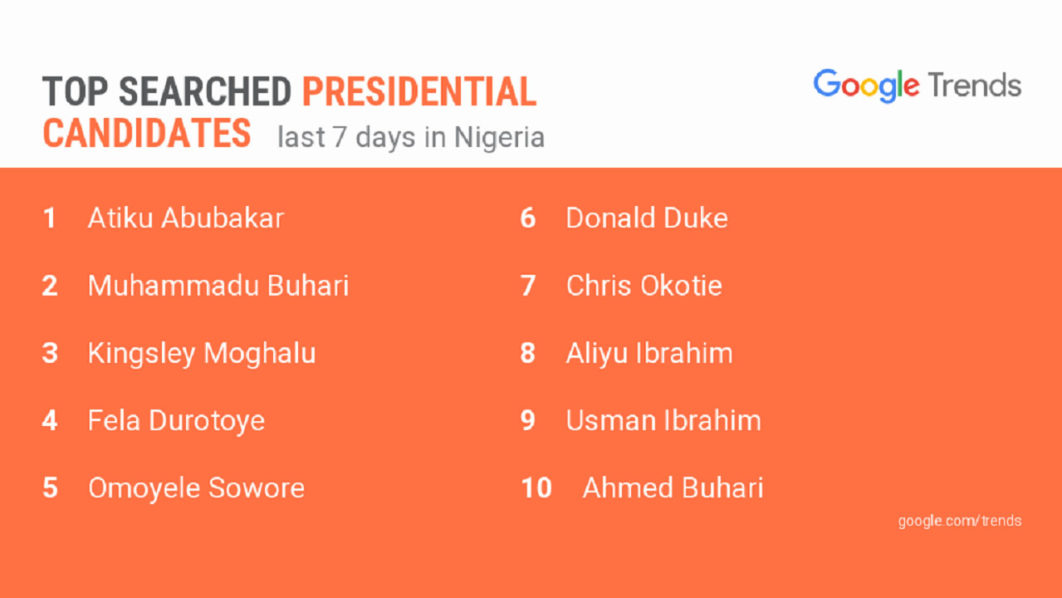
The People’s Democratic Party presidential candidate, Atiku Abubakar, in the last seven days, topped the most searched presidential candidate list on Google trends.
Google Trend data is based on a representatives sample of Google searches.
The PDP candidate was followed by the ruling All Progressives Congress presidential candidate president Muhammadu Buhari while Kingsley Moghalu, presidential candidate of the Young Progressives Party (YPP), is on the third position.
This indicates that the February 16th presidential poll votes might be largely shared amongst the trio.
While the incumbent president is keen on a return to the Aso Rock, Abubakar is aggressively pushing his political mantra “Get Nigeria Working Again” and the former Deputy Governor of the Central Bank of Nigeria is optimistic of getting his first political office with his “It is time” message.
Others in the top 10 bracket were Fela Durotoye candidate for Alliance for New Democracy (ANN), Omoyele Sowore Africa Action Congress (AAC) presidential candidate, Donald Duke, the embattled Social Democratic Party presidential candidate, Chris Okotie of Fresh Democratic Party, Aliyu Ibrahim of African People Alliance (APA), Usman Ibrahim of National Rescue Movement (NRM), and Sustainable National Party’s (SNP) candidate Ahmed Buhari.
However, the tough battle, political analysts said is between the APC and PDP.
In previous elections, the easiest way for a candidate to win the presidency was to corner the votes of two of the country’s three main ethnic blocks, the Hausa speakers in the north, the Yoruba from the southwest and the Igbo in the southeast and then try to tap into support from other minority groups.
This time around, it’s a more complicated calculus because both Buhari and Abubakar are Muslim northerners.
The Yoruba played a pivotal role in bringing Buhari to power in 2015, and he’s hoping to retain their support by sticking with the same running mate, Yemi Osinbajo, who hails from the region.
Abubakar chose Peter Obi as his deputy with a view to drawing support from fellow Igbos, and is targeting support from minorities in the oil-producing south by pledging to devolve more power to regional authorities.
A prediction from Eurasia Group, a United States political risk consultancy corporation, sees a Buhari victory with 55 per cent of the vote against Abubakar’s 45 per cent, citing the incumbent’s relative trustworthiness when compared to Abubakar.



